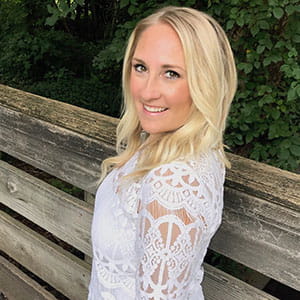Adulthood piles quite a few things on your plate. One of the toughest to work through is when to buy life insurance. And, the longer you wait, the more intimidating it gets. But it’s not the end of the world if you buy a policy in your 30s. Everyone’s situation is different, so you may buy your policy at a later age. Here’s what you should know about life insurance, depending on when you buy it.
WHAT ARE THE BEST AGES TO BUY LIFE INSURANCE?
There are various benefits and drawbacks to buying life insurance at different stages of your life. Depending on your age, you may want to think about the type of policy you buy, such as term, variable, whole, or universal insurance.
Young adults can get away with term life insurance for some time, which is cheaper. But whole life insurance offers a cash value account that older groups can put towards retirement.
Remember: before you purchase any life insurance, know what goes into your premium. Some factors include your age, gender, health history, family health history, tobacco use, hobbies, occupation, and the policy itself.
YOUR 20S
If you’re in your 20s, you probably think you can wait a while longer. After all, many of us go through our 20s in good health – we think we’re untouchable. And you’re partly right. If there’s a decade in your life that you can go without life insurance, it’s likely your 20s.
But, things can change overnight. Plus, if you have any children, you want to protect yourself for their sake. However, the older you are, the pricier your policy options become. So, why not buy life insurance when it’s generally the most affordable? Business Insider reports that, among four large insurance providers, people in their 20s receive an average quote of around $20 per month for a 30-year term policy worth $250,000.
YOUR 30S
With your 20s behind you, it’s time to really start buckling down. Many begin to have families at this point in their life, which means the pressure is on.
People in their 30s are usually in one of three places: they are purchasing their first policy, have a policy provided by their employer, or need an upgrade from the policy they bought in their 20s. In some cases, you may need to buy additional coverage on top of your employer’s plan. Recommendations vary, but you should aim for a policy worth several times your annual income – at least 5 but preferably 10 times.
Life insurance rates can still be relatively cheap at this age per individual, at around $20 to $25.
YOUR 40S
Rates will start to increase during your 40s dramatically. So, it’s important to adopt a life insurance policy before they climb too high.
You may have purchased a previous Term Life that is now expiring. Or, you might be reconsidering the policy offered through your job. Either way, choose an option that accommodates you cost-wise and need-wise. Consider the potential health issues you may face in the near future and who still depends on you at this point.
Some may want to think about lower levels of coverage if they want to be cost-effective.
YOUR 50S AND OLDER
After your 40s, policies can become much more expensive. And it’s only an uphill battle from here, since both genders hit over $50 in monthly payments at this age.
While it’s not impossible to get a policy in your 50s, consider all the costs that may be on your plate. More health issues will probably start popping up, for one. Even if they’re normal with aging, they still contribute to expenses like prescriptions. On top of that, you have other potential debts facing you down.
If you have trouble finding an affordable policy at this stage, consider shifting your policy. Some alterations can help you save money, such as a shorter term or lower coverage level.





















